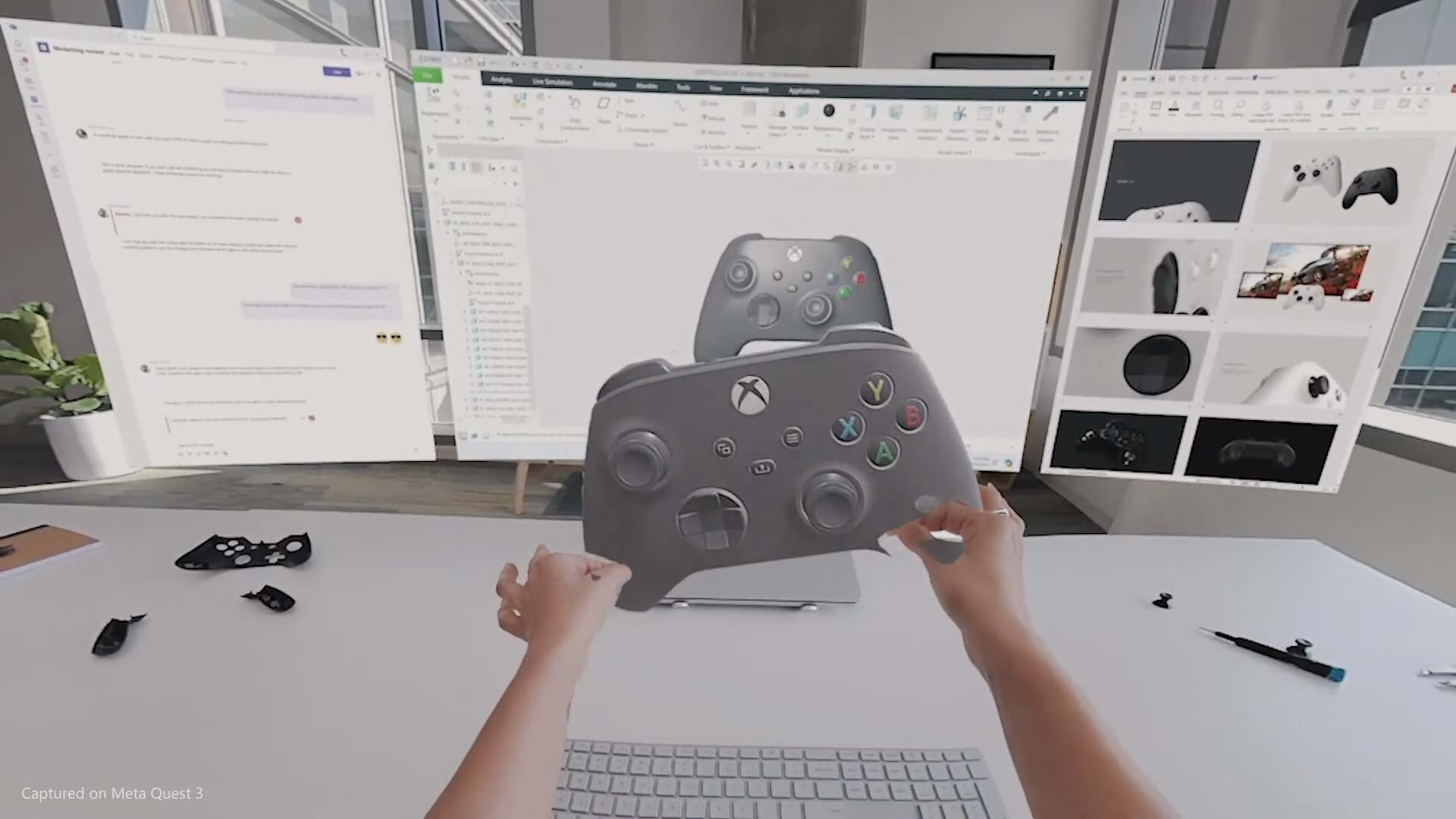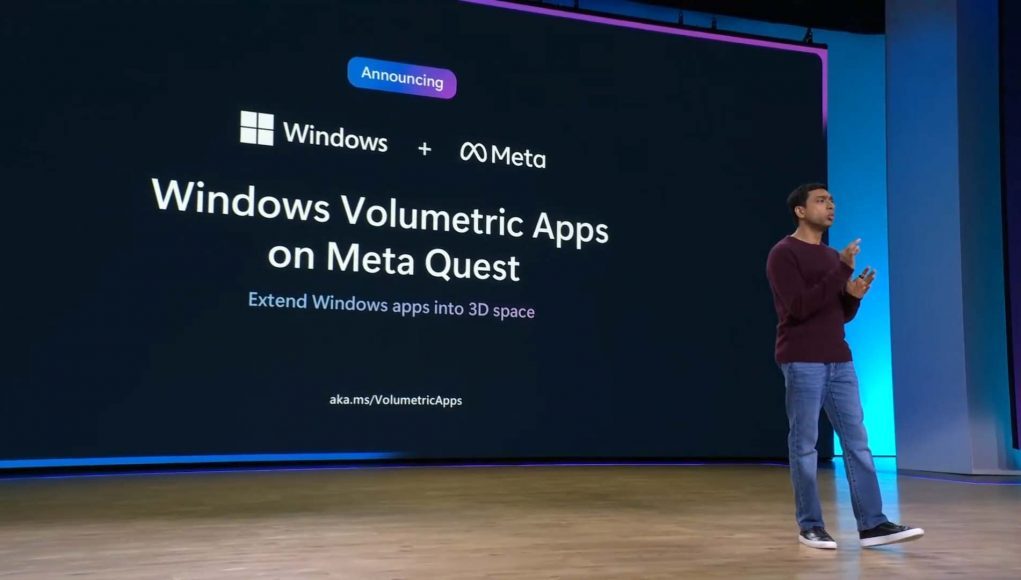At Microsoft’s Build developer conference the company announced it was bringing Windows Volumetric apps to Quest, which Microsoft calls a way to “extend Windows apps into 3D space.”
Pavan Davuluri, head of Windows and Devices at Microsoft, announced on stage at Build the company was “deepening [its] partnership with Meta to make Windows a first class experience on Quest devices.”
Microsoft says it’s aiming to transform workflows by bringing Windows 365 and local PC connectivity to Quest, which the company says will allow developers to easily bring their Windows apps into XR.

“We call these Volumetric apps,” Davuluri says in a blog post. “Developers will have access to a volumetric API. This is just one of many ways to broaden your reach through the Windows ecosystem.”
This isn’t the first time Microsoft has extended its reach into XR software. Introduced in 2017, the company’s Windows Mixed Reality platform included baked-in support for its line of VR headsets. In late 2023 however, Microsoft deprecated support for WMR.
Information is still thin on the ground, so there’s no telling how this partnership will develop beyond allowing access to developers. As it is, the XR landscape is shifting fairly rapidly with the announcement last month that Meta was releasing its XR operating system to third-party OEMs for the first time, including ASUS, Lenovo, and Xbox.
Meanwhile, Google and Samsung are releasing an XR headset at some point, which not only promises to return Samsung to the XR headset space, but also allow Google its first opportunity since Daydream to release its own first-party Android-based XR operating system.







